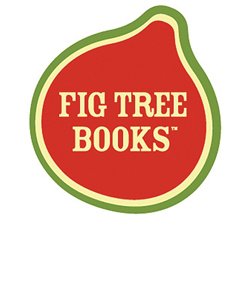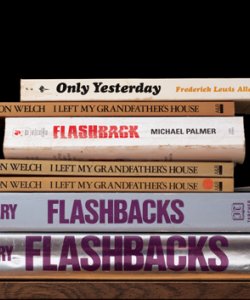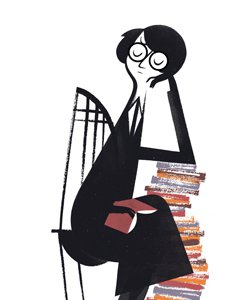The Loft Still Flying High at Forty
Grove Atlantic and Electric Literature join forces to launch Literary Hub, a new site with an editorial team dedicated to curating the best literature-related writing on the Web.
Jump to navigation Skip to content
Articles from Poet & Writers Magazine include material from the print edition plus exclusive online-only material.
Grove Atlantic and Electric Literature join forces to launch Literary Hub, a new site with an editorial team dedicated to curating the best literature-related writing on the Web.

In Home for an Hour, an interdisciplinary collaboration between artist Adam Moser, writer Jacob Paul, and photographer Sarah Martin, seven couples are given free rein inside Moser’s apartment, while Paul composes stories about how the guests spend their time there.
Grove Atlantic and Electric Literature join forces to launch Literary Hub, a new site with an editorial team dedicated to curating the best literature-related writing on the Web.
Literary MagNet chronicles the start-ups and closures, successes and failures, anniversaries and accolades, changes of editorship and special issues—in short, the news and trends—of literary magazines in America. This issue’s MagNet features Rattle, Poetry International, the Moth, Grain, and Barrelhouse.

The director of the Barnes & Noble Discover Great New Writers program talks about the process of searching for the “extraordinary storytelling” that makes a great new book.

Inspired by the works of Shelley, Keats, and Byron, a new video game challenges its players to get creative with writing-based gameplay.

Kundiman, the New York City–based organization that hosts a prestigious annual retreat for Asian American poets, celebrates its ten-year anniversary by launching its inaugural fiction retreat this spring.

Small Press Points highlights the innovation and can-do spirit of independent presses. This issue features the Bedford, New York–based Fig Tree Books, which seeks to support the voices of American Jewish authors, publishing both new titles and rereleases of out-of-print works.
In the LGBTQ Writers in Schools program’s first district-wide partnership, Lambda Literary teams up with the second largest school district in California to bring LGBTQ books and authors to students.
With so many good books being published every month, some literary titles worth exploring can get lost in the stacks. Page One offers the first lines of a dozen recently released books, including Kazuo Ishiguro’s The Buried Giant and Reif Larsen’s I Am Radar, as the starting point for a closer look at these new and noteworthy titles.
Literary MagNet chronicles the start-ups and closures, successes and failures, anniversaries and accolades, changes of editorship and special issues—in short, the news and trends—of literary magazines in America. This issue’s MagNet features Zoetrope: All-Story, Tweed’s Magazine of Literature & Art, the Normal School, Caketrain, and Irish Pages.

The director of Bread Loaf’s new Translators’ Conferences talks about how the conference came about, what shape it will take, and what it means to be a translator in today’s literary culture.

UK artist Jennifer Collier uses repurposed books and papers to sculpt an array of art objects inspired by the very materials used to create them—from stilettos made from the pages of Little Women to gloves fashioned from the illustrated text of Alice in Wonderland—each finished project a reflection of the written words from which it’s made.

The increasing success and growth of a nonprofit writing center in Portland, Maine, reflects the incredible importance of storytelling in the lives of youths.
With help from the Lannan Foundation, one of America’s most prestigious poetry prizes has survived the threat of shutting its doors, instead increasing its monetary award tenfold.
Literary MagNet chronicles the start-ups and closures, successes and failures, anniversaries and accolades, changes of editorship and special issues—in short, the news and trends—of literary magazines in America. This issue’s MagNet features Ninth Letter, Gulf Coast, Gigantic, and Parallax.
Amidst questions of racial diversity in the publishing industry, the Hurston/Wright foundation continues its outstanding support of African American writers, promising a brighter outlook for the state of writing in America.
With so many good books being published every month, some literary titles worth exploring can get lost in the stacks. Page One offers the first lines of a dozen recently released books, including Edith Pearlman’s Honeydew and Rikki Ducornet’s The Deep Zoo, as the starting point for a closer look at these new and noteworthy titles.

Small Press Points highlights the innovation and can-do spirit of independent presses. This issue features the San Francisco–based Manic D Press, which publishes a broad array of books by authors who would otherwise be, as editor Jennifer Joseph says, “shunned by the traditional publishing establishment for their lack of commercial viability.”

In her Sorted Books project, Nina Katchadourian arranges books from libraries—including William S. Burroughs’s personal collection, as well as those housed in museums and galleries across the country, to find a kind of poetry in the spines.

Innovations like the USB Typewriter, Hanx Writer, Hemingwrite, and Typing Writer are giving new life to the classic typewriter by updating it for the digital world.

“My work is a lifelong celebration of futility.” Artist Roman Muradov, designer of this issue’s cover, discusses his various wells of inspiration, his relationship to the written word, and the importance of doing nothing.

Artist and architect Matteo Pericoli pairs drawings of views from the desks of writers around the world with essays by those writers about where they write, what they see, and how their view informs their work

Small Press Points highlights the innovation and can-do spirit of independent presses. This issue features the Portland, Oregon–based Tavern Books, which publishes original, translated, and reprinted poetry, as well as the Honest Pint, a unique take on the literary journal.
Recent restructuring at Alice James Books has allowed the forty-year-old press to strengthen its commitment to supporting the work of women poets.